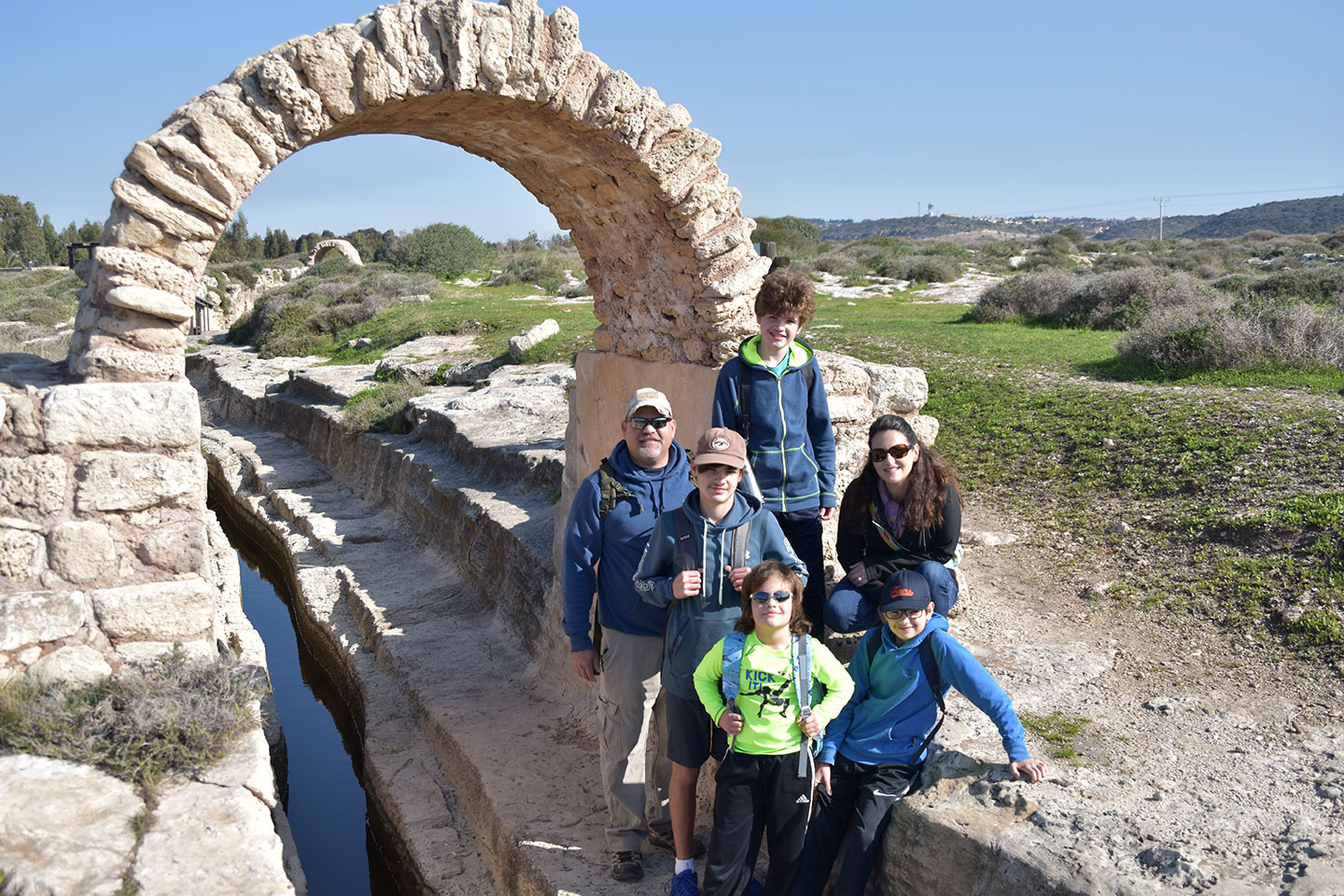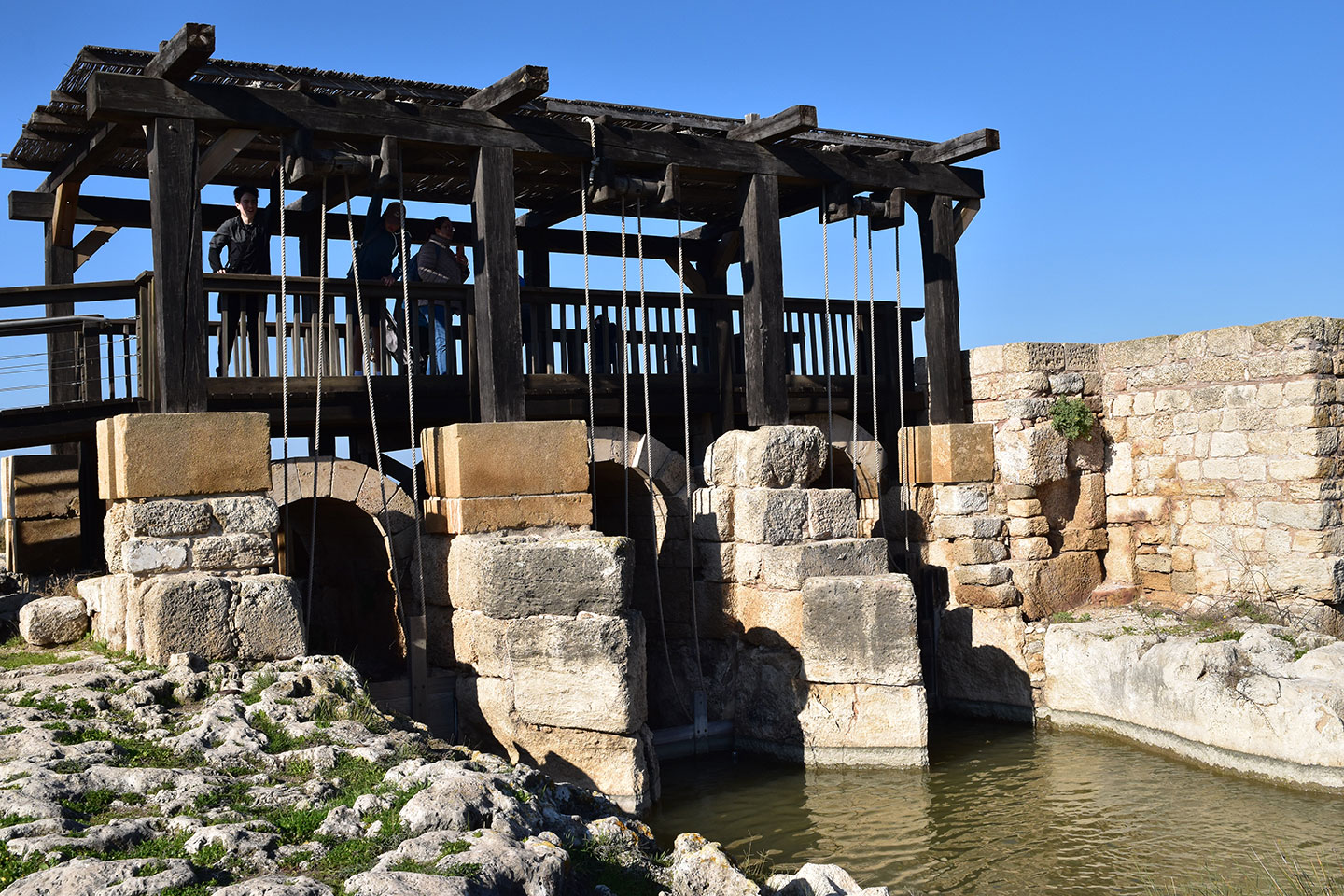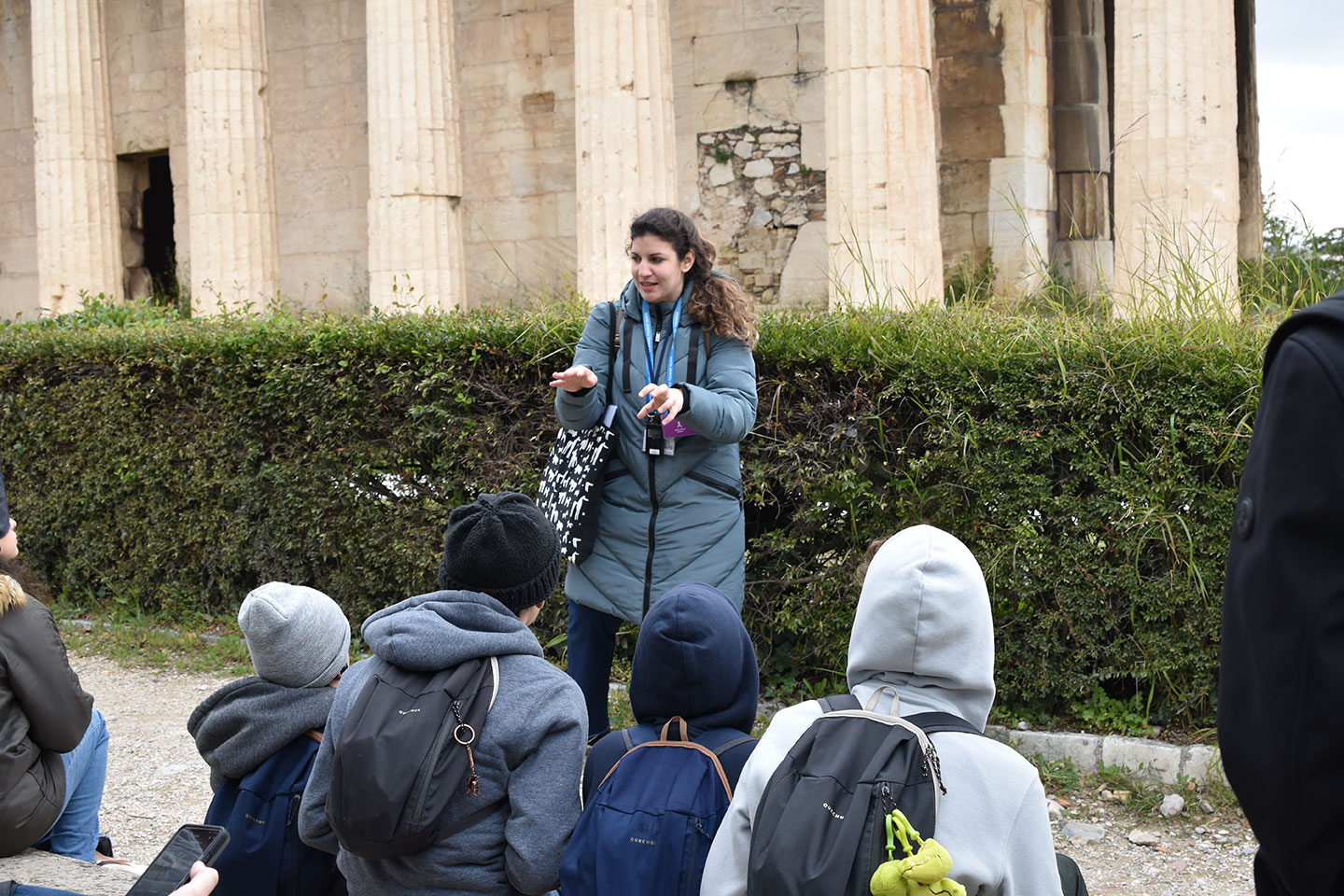“The heart of a man plans his way, but the LORD establishes his steps.” -Proverbs 16:9
Since 2011, we have homeschooled our children.
By 2018, we had homeschooled in three states and five homes.
We were firmly committed to finishing our kids’ education at home. Then, my husband was offered a job in Israel. This was not part of my plan, but neither was homeschooling part of our original plan, so we decided to move our family of six to the other side of the world.
We learned so much during our three and a half years in Israel, and not just about history and the Bible. Our kids became expert travelers; they learned to adjust in a hurry; they learned a new language by playing Nerf with the neighbor kids; and they became generally more fun to be around. Of course, the academic benefits are endless.
Homeschooling abroad provides a multitude of opportunities to provide one-of-a-kind education.
Are you thinking about homeschooling abroad? Great idea! Let’s talk about things to keep in mind as you decide.
Compliance with Local and State Homeschool Regulations
Homeschooling Outside the US
If you are a United States resident or citizen, but you plan to homeschool in another country, there may be very specific steps you will need to follow in order to continue homeschooling. If you are merely visiting another country and not keeping a residence there, the process is simple: See State of Residence Regulations later in this article. Yet, if you plan to live abroad for a longer period, you’ll need to know the host country’s regulations.
Host Country Regulations
Many countries allow homeschooling under specific conditions. Their laws typically apply to the general public, even non-citizens. The first step is to determine your host country’s homeschooling laws. Some countries require state oversight, a home visit, testing, compulsory attendance, etc.
Some countries ban homeschooling entirely. Often, if you never place your child in the local school system, you can simply start homeschooling according to the regulations of your home of record. Local homeschool groups are often very helpful in pointing newcomers to up-to-date resources and contact information.
State Department Employees and Military Families often have legal protections and resources that private contractors do not have. If you are serving in the military or with the State Department, you should contact the CLO/SLO for your new posting to ask for local resources.

State of Residence Regulations
If you maintain your residency in your home state (the state in which you vote, maintain a driver’s license, own a home, etc.), you should also follow the regulations of that state. This not only ensures that you comply with legal requirements but also will help provide a smoother transition as you return to the US. You can find your state’s homeschool laws at Find your state’s homeschool laws!
Cost and Compensation
Reimbursement From Your Employer
If your employer is sending you to live in a different country, you may find that the Human Resources department offers educational reimbursements for local international schools. In this case, they often also provide reimbursement for homeschool materials, which could provide opportunities that might not otherwise be an option for your family because of financial constraints. Speak with your human resources department about their policies regarding school options.
Traveling Light
A common regret of homeschoolers who have moved overseas is bringing multiple years’ worth of homeschooling books and supplies. During the preparation for making such a move, it’s tempting to plan years in advance for each student. However, many international homeschoolers find that the preparation time is more fruitfully spent researching the destination (see more on that below).
You’re likely better off investing in quality tech (laptops, tablets, Kindles, headphones, etc.) before your big move. It’s often difficult or cost-prohibitive to purchase these items overseas.
Familiar routines are helpful during the transition from one country to another; however, you’ll want to allow for some flexibility in the curriculum. You may find that what works in one atmosphere doesn’t work as well in a new environment.

Online Classes
Many international homeschoolers choose to make use of the educational reimbursements provided by their employers to enroll their students in classes online. Most online schools allow students to take “à la carte” live courses. We have found that international students are often given preference at registration time due to the difference in time zones. There are pros and cons to taking live online classes.
Pros
- Someone else takes over that subject, which frees up mom or dad.
- Homeschooled kids become accustomed to larger classes and working with someone else’s deadlines.
- The student gets to connect with other kids from his primary culture.
Cons
- Attendance in live classes is often tied to the student’s grade, so it’s difficult to take spontaneous field trips.
- The student is bound to someone else’s deadlines (See what we did there?).
- Depending on the school/teacher, the student may be “stuck” with a teacher he does not like for up to a full school year.
Many curriculum providers also offer more affordable self-paced online courses. These are another great option because not only do you have the Pro #1 from above, but many of these courses are also self-graded. The curriculum providers often have representatives on staff to assist with technical questions or issues with understanding the material.
Online classes can be a great way to help your kids stay engaged with your home country, as well as take some of the planning off your plate so you can focus on local learning opportunities in your host country.
Curriculum
The long-running joke among veteran homeschoolers is that there is no universally perfect curriculum. Most of us end up piecing together from various sources the curriculum that best suits our children. If you have never been exposed to homeschooling, purchasing a boxed, all-in-one curriculum is often the best way to get your start.
The trick is knowing that you are in charge of the way the curriculum is used. You are not a servant to the curriculum; it is a servant to you!
Research
Use your prep time before moving overseas to look at how you can manipulate your current curriculum to fit into your lifestyle in your new destination. Look ahead at the history chapters and find out how you can bring local history to life by visiting a historical site or a museum. Study the applicable chapters with your student before visiting, and then assign a project to the student after the trip. It can be a research paper, a collage of photographs or brochures, a hand-drawn map, or a timeline. So many options!
Before and during your visit to any National Parks and Attractions (more on that below), read together about its historical significance. Find out if famous people have visited the location. Search for movies or YouTube videos featuring the location. You can use this opportunity to teach your children research skills.
Search for Science and Technology Museums in your host country and try to organize a group to take a tour together. Look at their website and learn what kind of displays they feature or if they have any seasonal exhibits that will coincide with your visit. Read ahead about any themes you find. Read or listen to biographies of historical figures and/or inventors associated with your destinations.

Research Projects & Presentations
If you plan to emphasize research, we recommend finding a good writing program so that your students will learn how to craft an excellent essay. “Lost Tools of Writing” is a great program that thoroughly teaches young writers the skills they need to write an exceptional essay. They might also write a newspaper article that would apply to a significant time in the history of the site.
Some students prefer to document their findings in other ways. Engineering-minded or artistic students may enjoy building a model of a historical site, showing the progression or maybe the various stages in the history of the site. Another option is creating a collage, collection, or timeline and displaying it in a way that demonstrates the student’s understanding of the significance of the situation.
Students who are learning coding and website development might make a webpage or advertisement about the sites they visit. You might encourage them to plan a trip itinerary and prepare remarks for each location on the itinerary. Research projects are a great opportunity for students to immerse themselves in the host country and to become experts, not only on the subject matter at hand but also on the research itself!
National Parks/Attractions
Many countries offer memberships or multi-day passes to their national parks, archaeological sites, museums, etc. Search the Bureau of Tourism website for your host country to discover all the places you can visit. TripAdvisor is a great place to schedule a tour to get information from an expert, and the guides often include kid-friendly activities. It is very helpful to have a tour guide if you are visiting religious sites for unfamiliar religions. Most religious sites require specific attire, and you want to be sure you’re prepared.

Unit Studies
“Unit studies are another popular homeschooling style. The home educator takes a subject that the student finds interesting and integrates that into multiple learning subjects. They live with that theme until the topic is fully explored” -Jessica Lovett in 8 Types of Homeschools (Classical, Charlotte Mason, Unschooling, Montessori, and More!)
Some topics to consider for international unit studies: Book a food tour on TripAdvisor. Learn about the cultures and reasons certain foods became common in that area.
Practice making local dishes at home or ask a neighbor in your host country to teach you to make a staple dish.
Study the animals and sea life that are indigenous to the region, and follow up your research by visiting (maybe even volunteering) local rehabilitation centers for injured animals.
Research famous people from your host country. Consider inventors of important objects, technologies, devices, machines, etc. Visit science and technology museums in your host country. Discover and learn about statesmen and royalty from your host country’s history. Study men and women who changed the direction of their nation, who made history by their bravery or boldness, and who changed the lives of the general public by their contributions to society.
Study the villains of history also: the men and women whose hate, greed, or fear drove them to do wrong.
Read about and visit the places where wars and battles were fought, treaties were signed, groups were settled, buildings were erected, etc. Immerse yourself in books by famous authors and learn about their contemporaries. Visit locations mentioned in their writing.
Learn art history by visiting not only museums but the childhood homes of famous artists. Assign your child a piece of art to replicate; help him learn about the style of the artist, the techniques used, why he or she used those techniques, etc. Learn about artists who have followed the traditions of those artists.
Taking It All Home
Whether you’re a veteran homeschooler, or brand new to the joys of homeschooling, if you’re planning a move abroad, homeschooling is a marvelous opportunity to give your kids a unique educational experience. After you cover your legal bases, ensure that you notify the proper institutions and dig in to research your future host country!
Soak in your new surroundings, and make a plan for visiting all the important sites. Along the way, you’ll find plenty of opportunities to guide your children to flourish in their academic competence, problem-solving aptitude, interpersonal skills, emotional maturity, and character development. Enjoy!
Lacy married her amazing husband, Dan, in 2004, and together they have four very handsome boys. They began to homeschool in 2011 and immediately saw their boys flourish emotionally, spiritually, and academically.
God has provided opportunities to move many times with their children and experience homeschooling in many states, as well as in Israel. She is happy to confirm that, thanks in large part to THSC, Texas is the absolute best place for homeschooling!
Throughout her travels, she has met dozens of homeschool families. Many of them guided and mentored her in the early homeschooling years. With 2 Corinthians 1:4 in mind, she strives to comfort and support other homeschool families wherever possible.




